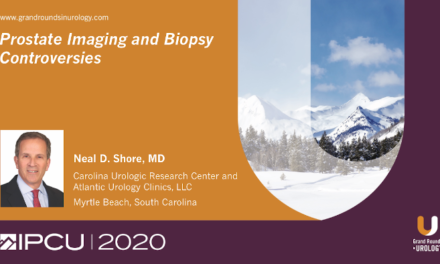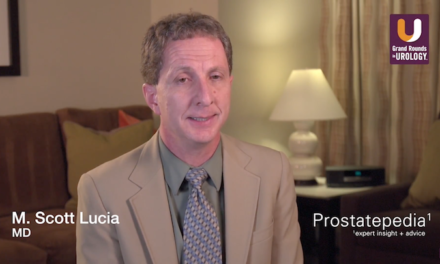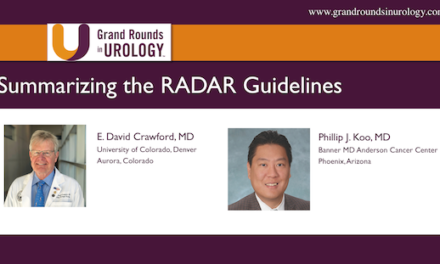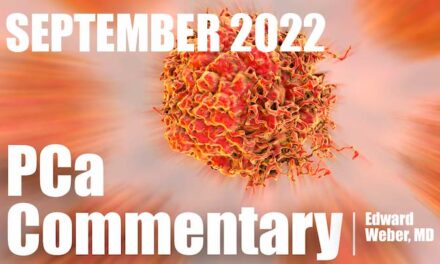Phillip J. Koo, MD, presented “PSMA Targeted Therapies and the Role of the Urologist” during the 29th Annual Perspectives in Urology: Point-Counterpoint, on November 20, 2021, in Coronado Island, San Diego, California.
How to cite: Koo, Phillip J. “PSMA Targeted Therapies and the Role of the Urologist.” November 20, 2021. Accessed Oct 2024. https://grandroundsinurology.com/psma-targeted-therapies-and-the-role-of-the-urologist/
PSMA Targeted Therapies and the Role of the Urologist
Phillip J. Koo, MD, Division Chief of Diagnostic Imaging and Northwest Region Oncology Physician Executive at the Banner MD Anderson Cancer Center in Phoenix, Arizona, discusses PSMA targeted therapies for prostate cancer and the urologist’s role in using radiotherapy. He begins by looking at the results of the VISION trial of lutetium-177 PSMA-617 for metastatic castration-resistant prostate cancer (mCRPC), explaining that radioligand therapy significantly increased overall survival and radiographic progression-free survival. Dr. Koo then considers the TheraP trial of lutetium-177 PSMA-617 versus cabazitaxel which saw far better PSA response in PSMA arm than in the cabazitaxel one. He notes that the amount of imaging used in patient selection for TheraP would be impractical in a real-world setting. Dr. Koo also looks at the slate of upcoming clinical trials of PSMA, highlighting the number of combination therapy trials in the CRPC setting, as well as the number of trials looking at PSMA’s potential role in earlier phases of the disease. Finally, Dr. Koo discusses the role of the urologist in the new PSMA era, arguing that urologists need to understand and be comfortable with PSMA since it is an increasingly important tool for treating advanced prostate cancer. He recommends that urologists create advanced prostate cancer clinics featuring targeted radiotherapy clinics.
About the 29th Annual Perspectives in Urology: Point Counterpoint conference:
Presented by Program Chair and Grand Rounds in Urology Editor-in-Chief E. David Crawford, MD, this conference brought together leading experts in urology, medical oncology, and radiation oncology to discuss and debate the latest topics in genitourinary cancers, primarily prostate cancer and bladder cancer. This interactive conference offered topical lectures, pro/con debates, interesting-case presentations, interactive panel discussions, and interactive audience and faculty networking.
ABOUT THE AUTHOR
Phillip J. Koo, MD, is the Chief of Diagnostic Imaging at the Banner MD Anderson Cancer Center in Phoenix, Arizona. Prior to this, he was Chief of Nuclear Medicine and Associate Professor of Radiology at the University of Colorado School of Medicine in Aurora, Colorado. He completed his fellowship at the Harvard Medical School Joint Program in Nuclear Medicine in Boston, Massachusetts. Dr. Koo is a diplomate of both the American Board of Radiology (ABR) and American Board of Nuclear Medicine(ABNM).





